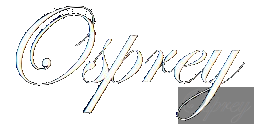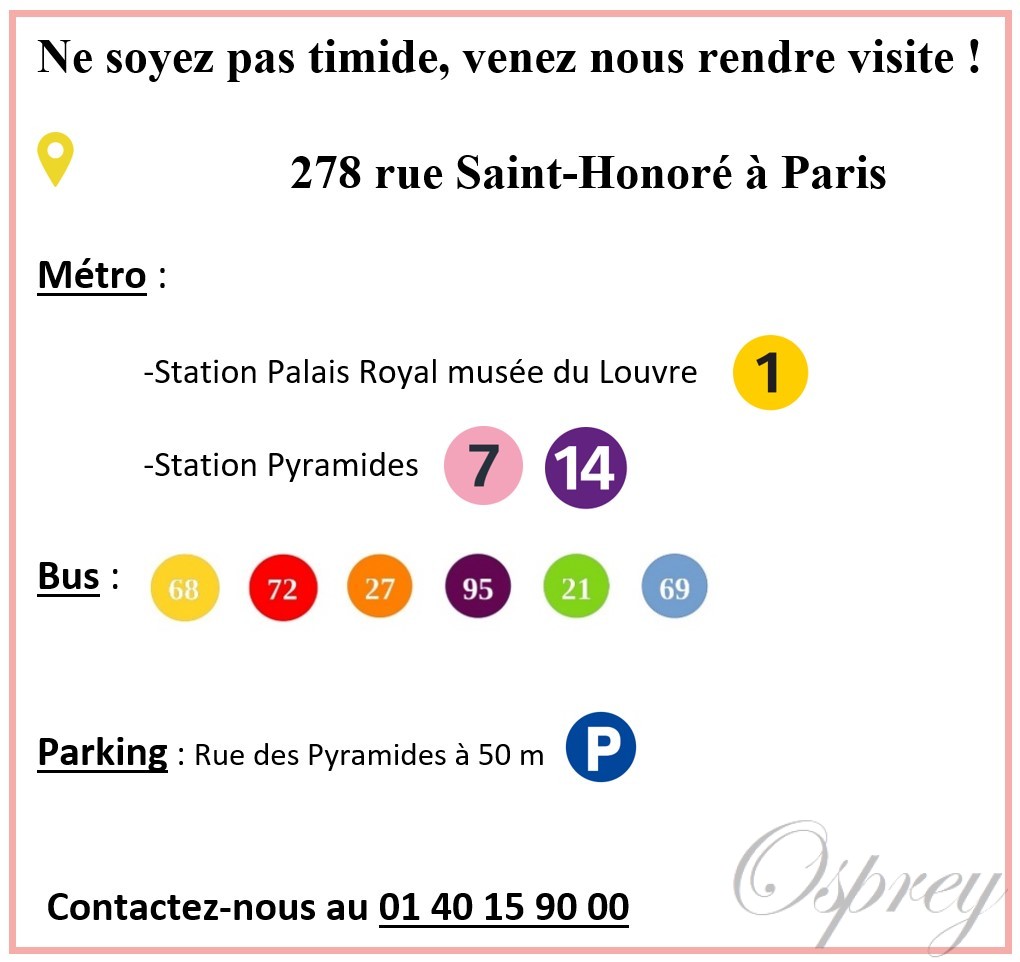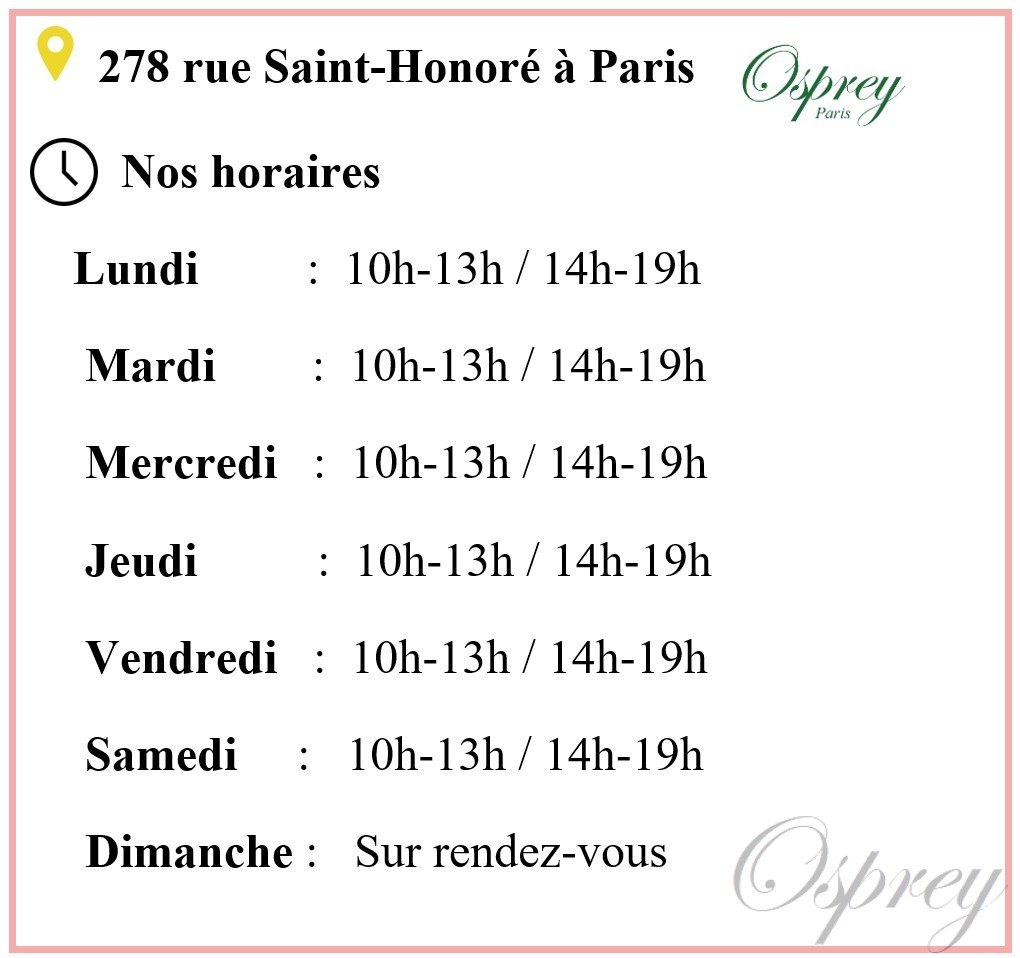How much is my coin worth?
It is impossible to appraise a coin without seeing it! Even though you can describe the coin and see its date, the condition is still the most important factor. For example, a 10 centime coin from 1852 to 1868 is very common in poor condition and is worth maybe fifty cents, but it can be worth up to €1,000 in perfect condition! Don’t hesitate to show your coins to our expert Mike, they will be appraised free of charge. Osprey Paris, 278 rue Saint-Honoré, 75001 Paris
But my coin is over 150 years old, it is necessarily expensive, right?
The value of a coin depends on 3 factors: condition, rarity and demand. We sell Roman bronze coins that are over 1500 years old from €4 as they are very common and not in demand, however some coins minted during the war are worth thousands of euros as they are rare and highly sought after.
I heard that it was possible to find rare coins in his wallet?
Unfortunately, no ! It is impossible to find rare coins in the currency that circulates!
It is however true that during the last years of the francs, some coins were struck in very limited quantities, but these coins were never put into circulation. They were sold directly to collectors in special cases at fairly high prices. Some press articles make believe that a 2 Frs coin from 1993 is worth €30, but they don’t know that in 1993 two types of 2 Frs were minted; a series with the portrait of Jean Moulin struck in 30 million copies, and the other with the drawing of the Sower, sold only in complete series of 1993, minted in less than 20,000 copies. Regularly we are shown bags full of 2 Jean Moulin Francs with no value other than that of their metal.
I heard that with the Euro, you have to keep coins because they will increase in value.
Absolutely wrong! There are probably less than 10,000 coin collectors in France. If each of us among the 60 million French people that we are keeps a few coins, it is logical that they will never become rare.
It is true that with the arrival of the Euro, some rare coins have increased in value, as demand has increased. The same phenomenon was noticed in Australia in 1966 and in England in 1971 when these countries changed their monetary system to be in decimal system. But prices quickly fell a few years later, and this is the case now with francs. We even risk seeing, in the next few years, more interest in Euro coins than in francs.
How can I clean my coins?
It is better never to clean coins. Sure, you can make them shine – with cleaning products, but you can’t remove the wear, and the coin will lose its value because collectors prefer the original patina. Cleaning with soapy water to remove dirt is the maximum recommended.
I have coins in a plastic album and noticed that some of them have turned green. Why?
The old albums being made of PVC, the plastic after a few years releases a corrosive gas which attacks the coins. It is important to take the pieces out of your album before they are irreparably corroded.
Should I sell my coins or keep them?
This is a question whose answer is a personal matter. If your coins have great sentimental value, keep them, but if not, consider selling them. We are professional numismatists, our job is that of an intermediary between the seller and the collector. We have seen far too many rare coins damaged by non-collectors, either by letting children play with them or by cleaning them with abrasive products.
In our opinion, coins are better protected and appreciated in collectors’ albums than in boxes stored in the cupboards of non-collectors.
We keep coins in the hope that they will increase in value, but the ones that increase in value are rare coins in perfect condition. These don’t stay in perfect condition in a box with other coins!
Most coins are not rare and have little value, but are still interesting for a collector, so if you don’t look at them, why not sell them?
If you show us a load of coins, and we appraise it at €300, you will have to decide whether to sell them or not. You have a simple choice, leave with €300 cash or with your coins! If you leave with your coins, it’s as if you had just paid cash for a batch of coins for €300, because you renounced taking €300. It’s a logical choice if you care a lot about your coins, but most non-collectors would never buy a lot of coins for €300 and store them in a cupboard afterwards, so they will prefer to sell them.
Customers often ask us if the value of coins will increase. It is impossible for us to answer. No one can say with certainty the direction that the value of currencies and precious metals will take in the years to come. If we knew that, we would have already made our fortune and retired!
Even if one day the price of silver were to rise, would you know? And if so, would you sell or, like many, wait a little too long until the price falls?
In 1960, the minimum wage was 1.60 Frs per hour, so a 5 Frs coin represented 3 hours of work. Today, a silver 5 Frs coin is worth about €4, or 20 minutes of work. Not a very good investment! If you think silver will go up, buy more coins, we’ll sell them! If you don’t believe, sell, but in any case, you have to choose!
I want to sell my coins and banknotes, what should I do?
Visit us in our Paris shop.
Do not clean your coins, put them in a bag or paper so that they do not scratch during transport. Do not wrap them individually in paper or envelopes, it is too laborious to appraise them. No need to sort them, we can do it faster than you.
The most expensive coins are those made of precious metals (gold, silver or platinum) or rare coins. If a coin is neither rare nor precious metal (brass, bronze, aluminium, etc.), we buy it anyway.
We will establish the value of your coins, and you will be free to sell them or not. You can keep some and sell others, it’s your choice. The most important thing for us is to meet you and see your coins to ensure that you are aware of the value of the coins and banknotes and that rare coins are protected.
Osprey Paris, 278 rue Saint-Honoré, 75001 Paris
Learn more about Louis d’or coins.
Contact Osprey Paris on 01 4015 9000 or 06 2009 3260

Mike, jeweller since 1981,
antique jewellery expert
and hallmarks, author
from the reference book
The Jewels of the French .






